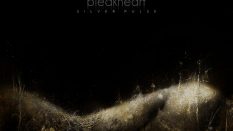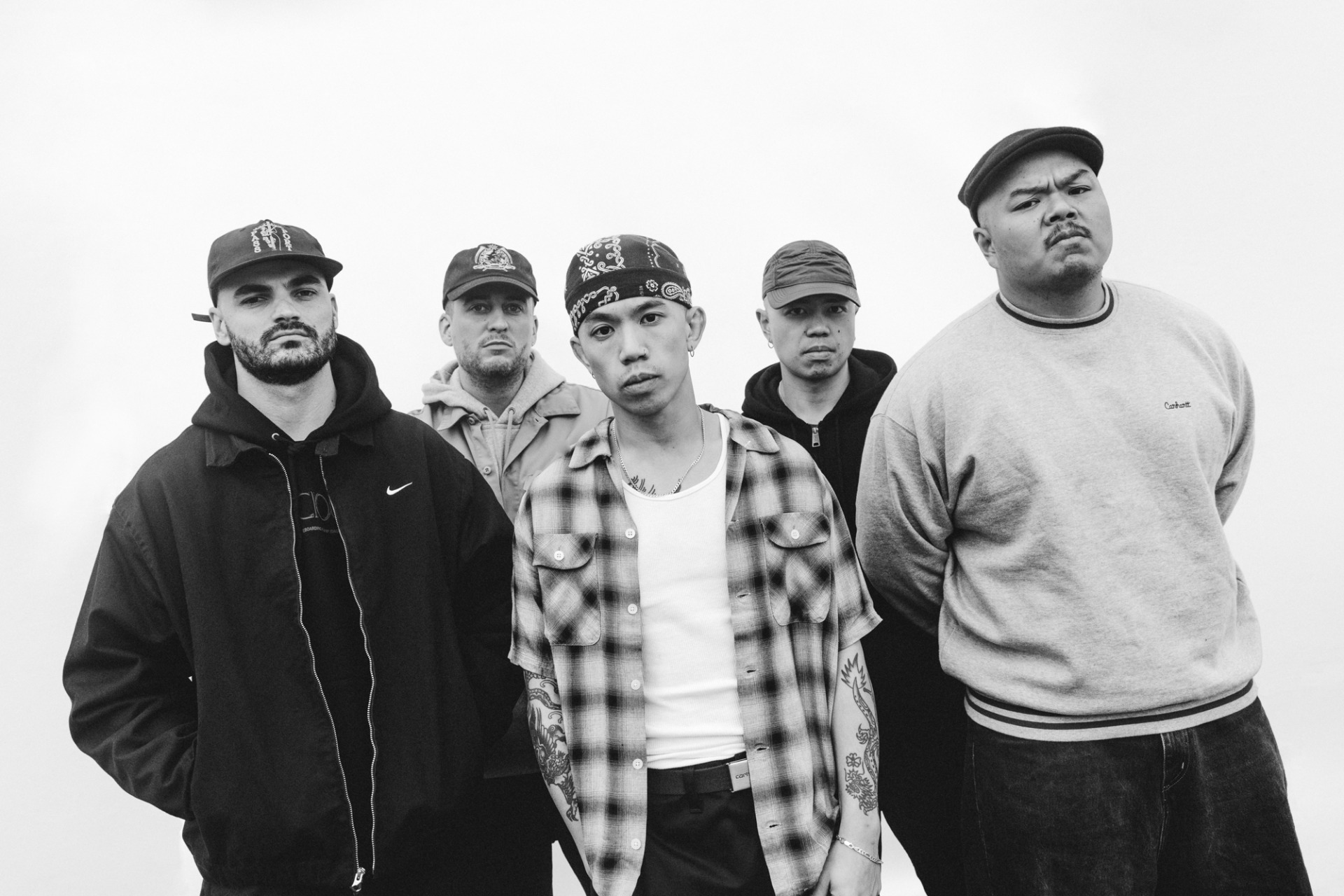
Dymna Lotva Face Warfare and Catharsis In "The Land Under the Black Wings: Blood" (Interview)
Throughout my interview with Dymna Lotva, members Nokt Aeon and Jaŭhien Charkasau stressed a simple, haunting message—“Wars are similar. War is war.”
It’s impossible to dislodge the Belarusian duo and their new album, The Land Under the Black Wings: Blood, from that sentiment. Metal has long been fascinated with warfare, but Dymna Lotva’s take on the subject isn’t so much about victory as it is survival. They relate their country’s history and their own experiences through a post-metal concoction of doom metal, black metal, and folk. However, theirs isn’t the doom metal that crawls from subterranean catacombs on the power of the riff nor is it black metal obsessed with occultism to the point that it ignores reality. Dymna Lotva are dramatic, grounded, and reactionary.
The poignancy of releasing an anti-war album in 2023 is not lost on the group who relocated due to external war circumstances. “The album was mixed and recorded before the Ukraine war. We started it in 2017, about six years ago. The album is about a decades-old war. But, ironically, it seems to come out in time for the next world war,” Nokt Aeon says.
…
…
Irony aside, Dymna Lotva draw similarities between the war in Ukraine and what their home country went through 70 years ago. Historically, Belarus has been a pathway through which warring countries have traversed eastward and westward, and as such, it’s often considered merely a portion of the Soviet bloc. The largest Belarusian band at the moment is Molchat Doma, the post-punk group who gained online fame thanks in part to TikTok users deeming them an acceptable soundtrack for aesthetic clips of life in Russia. This is precisely why Dymna Lotva explored their national identity further on The Land Under the Black Wings: Blood. “We wanted to talk about this part of our history and understand it more because we see the same thing happening in Ukraine as we did in Belarus in World War II.”
The country was plagued during World War II as it sat between the Soviet Union and Nazi Germany. During the Nazis’ three-year occupation, Belarus suffered more than two million losses, a quarter of whom were Jewish. Dymna Lotva relates two stories about Nazis occupying a village and eventually razing it to the ground in “Hell.” The first story is about a woman who escaped from the fascists after they killed her family. They cornered her in the woods and she asked them to spare her life. “She told the Nazis not to kill her, she’ll sing them a song. She sang the song, this song, but after they heard her beautiful song, they still killed her.”
The other story was sadly interrupted by an unstable Zoom connection during our interview, but it detailed a mother crying and mourning her child’s loss amidst a fire. “Hell” references both tragedies with guest vocals from the band’s friend’s child. The youngling shrieked and screamed in the studio, but Dymna Lotva assured me they handsomely compensated the performer with pizza, burgers, and money. “It was not as bad as it sounds, if anybody asks how we made the poor child scream like that.”
Additions like the child’s screams are only a piece of Dymna Lotva’s larger vision, which took them four years to put to tape. “We recorded the album from 2017 to 2021. We had all the music, but we only had the money to go to the studio for two weeks. So we had to go earn the money and then go to the studio for one day to spend the money. Then we repeated that loop for about four years. It wasn’t just about the money. After the release of our Wormwood album, we played more concerts. We only had one concert before it. But after, we spent more time playing around Belarus. We didn’t have a ton of free time recording though.”
The long recording process gave way to a long road to release as the group was forced into exile from Belarus in 2021. After participating in protests against President Alexander Lukashenko and the trial of singer Lesley Knife (whom the group had ties with), the Belarus government banned all their upcoming live shows. Aeon fled to Ukraine to escape arrest, but the outbreak of the war forced her to leave again, eventually meeting up with Charkasau again in Poland.
As mentioned earlier, the pair’s goal with The Land Under the Black Wings: Blood was to explore Belarus’ history with their audience, a history that feels more vital given the situation in Ukraine and how that directly affected how metal developed in their home country. “Growing up, I listened to rock music like HIM and Cranberries at the start of this century. I remember I asked for a cassette from my friend’s older brother for a doom metal compilation, and this was almost 20 years ago. It was a little cassette with underground Belarus doom metal, and Belarus is already underground, so it was underground underground. We have a bunch of metal, but we didn’t know about communities. There’s a lot of black metal, folk metal, and black/folk metal. There’s not so much depressive black metal because our regular black metal is already quite depressive,” says Aeon.
When asked if it’s fair to say that they have black metal’s spirit even if they don’t sound like black metal, the pair nodded. They attribute that to Belarus’ meager size, lack of money, and the heavy restrictions on citizens. However, depressive black metal’s influence seeps into their music, hinted at by their prior comments. Charkasau specializes in mid-paced guitar tempos and liberally injects post-punk bass into his compositions, while Notk’s vocals are closer to a shriek than traditional metal growling. They’re harrowing and pained rather than mighty or confrontational. Yet, these aspects are only a piece of Dymna Lotva’s aesthetic. Their willingness to integrate whichever instruments they can get their hands on that justifies the album’s length. When asked about their decision to introduce folk elements, pianos, saxophones, flutes, and strings, Aeon replies, “Why not? He (Charkasau) likes to bring in more instruments to our music. Maybe only the saxophone is not traditional.”
The pair’s ideas of preserving and exploring traditions intertwine with The Land Under the Black Wings: Blood’s contextual place in their discography. It’s the second entry in a trilogy, which they explain as such: “Belarus is a place of threes. It has three colors in our national colors—black, red, and white. We have three types of female: goddess, the old mother, and the old woman. We also have a joke in school that Belarus has three themes for books; the swamp, the war, and the village. So, our first album was about the swamp, this album is about war, and the next one will be about the village.”
Unintentionally, Aeon perfectly summarizes The Land Under the Black Wings: Blood, whose heavy subject matter, imposing size, and conservative pacing bar it from instantly connecting with those seeking metal’s dopamine rush. It’s an album that takes time, much like the books she read as a child. “However, it’s a little annoying because these books are not for children. They’re depressing. When children are young, they think they need to reject all this literature. But when they are adults, they realize the books are great. They’re depressive and deep, but they’re not for kids”
…
The Land Under the Black Wings is available this week on Bandcamp.










